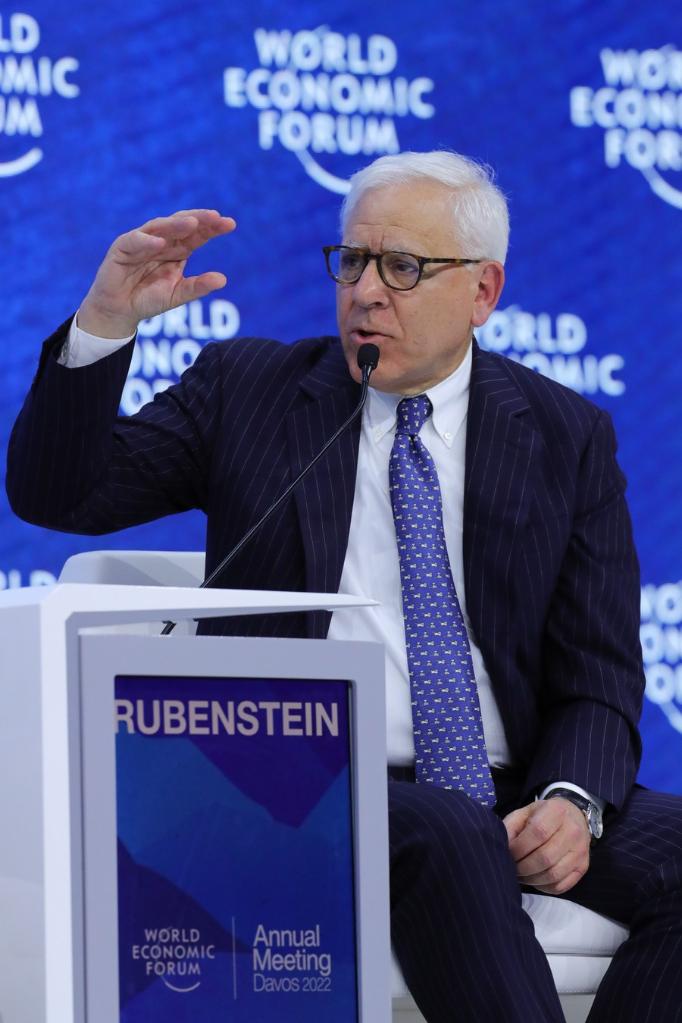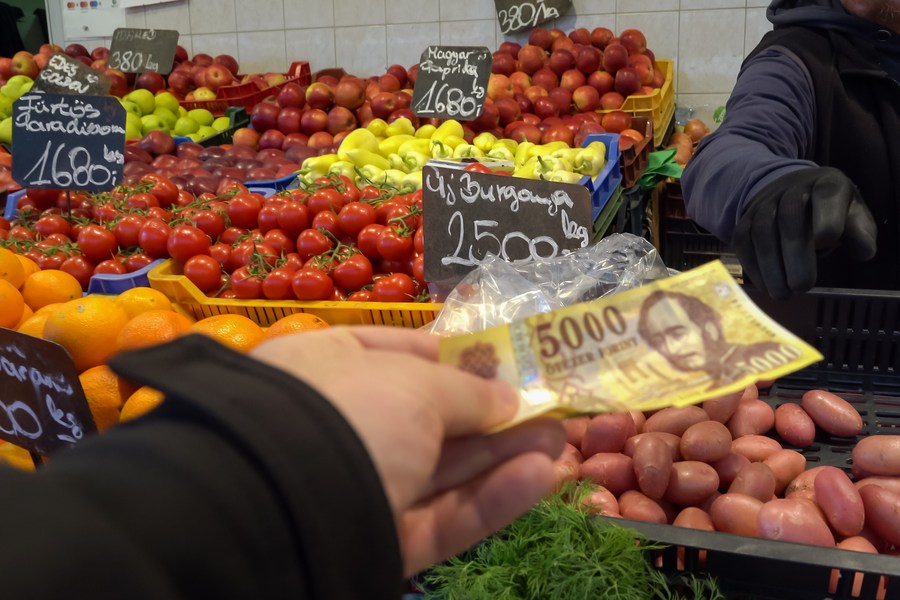
David Rubenstein, co-founder and co-executive chairman of the Carlyle Group, attends a session themed "Global Economic Outlook" of the World Economic Forum (WEF) Annual Meeting 2022 in Davos, Switzerland, May 23, 2022. (Xinhua/Zheng Huansong)
In March, China set its economic growth target at around 5.5 percent for 2022, after it saw a strong rebound of 8.1-percent growth in 2021 and became the only major economy to record growth in 2020.
DAVOS, Switzerland, May 24 (Xinhua) -- Billionaire investor David Rubenstein said here Tuesday that he planned to continue to invest in China while urging a rapid end to the conflict in Ukraine to avoid a steeper global economic crisis.
GLOBAL SLOWDOWN
Rubenstein, co-founder of private equity giant the Carlyle Group, made the remarks during an interview with Xinhua on the sidelines of the ongoing World Economic Forum (WEF) at the Swiss mountain resort town of Davos.
"It's difficult to say where the (global) economy's going right now, because there's a lot of flux going on," said the co-founder and non-executive co-chairman of the board of the Carlyle Group, which manages some 260 billion U.S. dollars in assets.
The world economy is "likely to slow down" while interest rates are going up around the world, and the "growth will be lower" because the COVID-19 pandemic is not ending yet, he noted, indicating the Ukraine conflict is also a major factor.
Due to the surging energy prices amid the Ukraine crisis, Rubenstein predicted a global slowdown "which we're already seeing, whether it's a recession or not, people will define later on."
In April, the International Monetary Fund (IMF) slashed the global growth forecast for 2022 to 3.6 percent, 0.8 percentage points lower than the January projection, according to its World Economic Outlook report.
"If (the Ukraine conflict) were to end soon, it would reduce energy prices, which would reduce inflation. It would also enable people to develop their supply chains better, and also enable food often produced in Ukraine to go to the export market," he said.

People buy food at a market in Budapest, Hungary on April 8, 2022. The Russia-Ukraine conflict has dealt "a major shock" to commodity markets, altering global patterns of trade, production and consumption, the World Bank (WB) said in a report released on April 26, 2022. (Photo by Attila Volgyi/Xinhua)
CONFIDENCE IN CHINA'S ECONOMY
The world-renowned investor noticed the impact of COVID-19 and the global situation on China's economy, reiterating his confidence in its potential.
In March, China set its economic growth target at around 5.5 percent for 2022, after it saw a strong rebound of 8.1-percent growth in 2021 and became the only major economy to record growth in 2020.
"In the long term, China has a very bright economic outlook, it has a large population, very hardworking people, well-educated and so forth," Rubenstein said, praising the Chinese government for having "a pretty good handle" on the economy.
In response to some predictions in the West that the Chinese economy is going to do poorly, Rubenstein said those predictions "are generally wrong," noting China has combined its methods with some Western ones to forge a unique way of developing its economy.

A worker is busy in a workshop of Harbin Turbine Company Ltd. of Harbin Electric Corporation in Harbin, northeast China's Heilongjiang Province, May 7, 2022. (Xinhua/Wang Jianwei)
"We will continue to invest there," said the investor, whose fortune is worth 3.8 billion U.S. dollars according to a Forbes estimate.




 A single purchase
A single purchase









